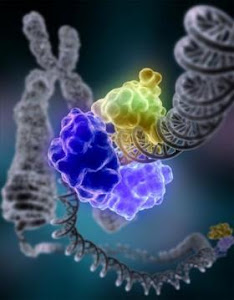Ask anyone who has lived to be 100 and they will tell you they nap.
Do you want the best anti-aging, metabolism booster, stress reducer, energy enhancement cure?
NAP MORE! SLEEP LESS!
So who in the world came up with sleeping 8 hours a night? It makes me wonder since so many people just can't sleep through the night. These "8 hour a night" sleep promoters have created more insomniacs (and $10 billion per year in sleep med sales) then ever before in recorded history. Consider this; it is not lack of sleep that gives people insomnia, it's from the stress of believing they SHOULD be sleeping that actually keeps people up!
8 hours is fine, but not all at once. Perhaps "staccato" sleepers, who sleep a few hours at a time, are on to something. The human body is simply not designed to sleep in large blocks of time. The same applies to eating habits. We starve our bodies for 8 hours at night. We overstuff then starve the tissues. We literally starve ourselves at night, and add to the aging of our bodies by denying us food during these long hours. This has definitive effects upon not just our bodies, but disorients our creativity and our degree of concentration. It makes our instincts "blurry". And in the process we have disempowered ourselves from our own healing ability.
With suggestion properly given, the body can recuperate in half the time now given to sleep. To some extent we "drug" the body with suggestion, so that it believes it must sleep away a certain amount of hours in one block. We have trained our consciousness to follow certain patterns that are not necessarily natural for it, and these patterns increase this sense of separation between the waking and dreaming self, even to the extent where our own dreams seem strange and fragmented. Sleeping pills and other medications also often prevent certain necessary dream cycles that can help the body recuperate, and the consciousness then becomes highly disoriented.
Sleepwalking is also connected to this long sleep pattern. Consciousness wants to return to the body, but it has been hypnotized into the idea that the body must not awaken. Excess nervous energy takes over, and rouses the muscles to activity because the body knows it has been inactive for too long and otherwise severe muscle cramps would result. It is much more invigorating and efficient to have the body active rather than inactive for eight to ten hours. Some cases of neurotic behavior result from present sleeping habits and physical inactivity. Ideally, sleeping 3 to 5 hours at a time you gain the maximum benefit; anything over that is not nearly as helpful. This particular "staccato" sleep schedule would generally aid persons with problems of depression or those with mental instability, even including schizophrenia.
Many diseases are caused by this division and this long period of bodily inactivity, and this extended focus of attention in either direction of waking or dreaming reality. The functions of hormones, and of adrenal processes in particular, would function with far greater effectiveness with these alternating periods of activities. The wear and tear on the body would be minimized, while at the same time all regenerative powers would be used to the maximum. Both those with a high and low, fast and slow metabolism, would benefit, and fatigue levels would always remain below danger points.
SOLUTION
Sleep in 3-5 hour blocks of time.
Start with 5 hours at night, then 1-2 naps during the day as needed. No more than 8 hours total per day.
The same way that many light snacks works much better on the body than three large meals a day, short naps would also be more effective.
Two periods of three hours each would be quite sufficient for most people, and with proper suggestions given as you lay down to sleep would insure the body's complete recuperation. As we all have experienced ten hours of sleep results in a sluggishness both of the mind and body and is disadvantageous on the system. In this case your consciousness has simply been away from the body for far too long a time, resulting in a loss of muscular and mental flexibility. You would retain a far greater memory of your subjective experiences, and your body would be healthier. Six to eight hours of sleep in total would be sufficient with the nap patterns outlined. People of course, vary in the amount of sleep they need. Yet even those who think they need more sleep than this, would find they do not if all the sleep time was not spent in one block. The entire system, physical, mental, and psychic (intuitive) would benefit.
The divisions between the self would not be as severe. Physical and mental work would be easier, and the body itself would gain steady periods of refreshment and rest. As the sleep habits are now, it must wait, regardless of its condition for 16 hours to recuperate. Due to chemical reactions during the dream state, bodily health with be improved. Small meals or snacks would then be taken upon rising. This alternating method of sleeping and eating would greatly help various metabolic difficulties. For many reasons physical activity at night has a different effect on the body than it does during the day. And ideally both effects are necessary. At certain times during the night the negative ions in the air are much stronger than in the daytime. Activity during this time, particularly a walk or outside activity, would be highly beneficial from a health standpoint.
The period before dawn usually represents a crisis point for people who are severely ill. Consciousness has been taken away from the body for too long of a period, and such a returning consciousness has difficulty dealing with the sick body mechanism. The practice in hospitals to give drugs to patients so that they sleep entirely throughout the night is detrimental for this reason. In many cases it is too great a strain on the part of the returning consciousness to take over again the ailing mechanism.
LOSING YOUR MIND!
THE OTHER 90% OF YOUR BRAIN
The division bewteen the waking and sleeping self is largely the result of how we use of time. With more frequent, briefer, sleep periods, there will be higher peaks of conscious focus, and a more steady renewal of both physical and psychic dream activity. A unified, more economical use of energy would result, and also a more effective use of nutrients. Consciousness as you know it would also become more flexible and mobile. Our sense of time would be less rigorous and rigid. Instead of the "blurry" vision we get now from dreams and "meditation", greater conscious focus would result. This is listening. Your conscious self listening to your unconscious self. Creative abilities would be quickened, and the great problem of insomnia that exists for so many people would largely be conquered - for what they fear is often the long period of time in which consciousness, as they THINK of it, seems to be extinguished. They don't sleep because they want to lose their mind! But that is exactly what you want to do.
IF NAPS WORKED FOR EINSTEIN, MAYBE IT WILL WORK FOR US!
Where do you go when you sleep and nap? Naps are key to direct Theta brainwave access. The more theta you have during waking hours the more creatively intelligent you are. Your conscious self would recall more of its dream adventures, and these "messages" would be put to good use and enhance the totality of your experience. Einstein did this: He would nap in a chair and balance a pencil between his thumb and index finger. As soon as he would fall asleep, the pencil would fall to the floor and wake him up, and he would write down his dreams and thoughts. E=mc2! This technique was also used by Tesla, Thomas Edison, Napoleon, and Winston Churchill.
Doctors, scientists have sought for the answers to disease and fail to find the source because the part of them that asks the question; is it. So next time you nap, lay down, close your eyes, and ask yourself, what is the cure I need today. Then simply relax and listen. Do doctors cure you? No. You do.



















































